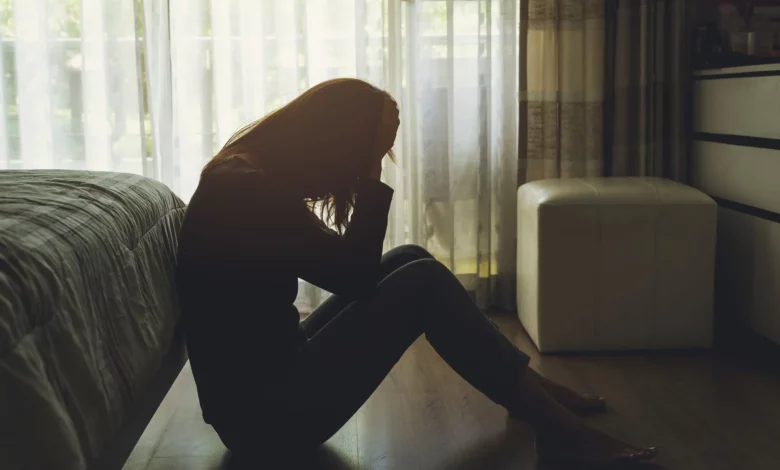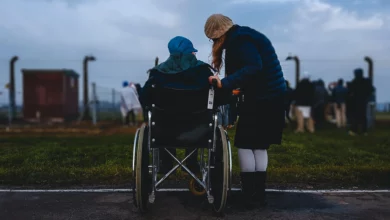PTSD Longevity: Does It Stick Around Forever?

If you’ve experienced PTSD trauma, you surely know the toll it can take on you. Nelson Mandela famously said, “Courage is not the absence of fear, but the triumph over it.” Coping with PTSD comes with a similar battlefield.
Whether you’ve been through a car accident or some other trauma, PTSD can lead to depression, anxiety, low self-esteem, anger, an inability to trust, and much more. It’s not just a “bad day.” It’s about facing the sum total of your feelings and thoughts.
There are natural, effective treatments for PTSD under the care of integrative medical professionals. Does PTSD go away? If so, how long it’ll last.
Does PTSD Go Away?
PTSD doesn’t have to last for the rest of your life. With the right treatments, like cognitive-behavioral therapy, drugs, and ways to deal with stress, people with PTSD can deal with their symptoms and try to get rid of them.
Since everyone is different, the time it takes to get better can change. It is important to know that PTSD can get better. People who have been through trauma can feel safe again and learn the skills and information they need to deal with their symptoms. With the right care and help, it is possible to get better.
What Are the Factors That Affect the Longevity of PTSD?
Several factors can influence the longevity of PTSD. It’s essential to recognize that each person’s experience with PTSD is unique, and a combination of these factors may play a role:
Severity of Trauma
The severity of the traumatic event is the most important factor in how long PTSD effects will last. People who have been through very upsetting or life-threatening events are more likely to get PTSD that is serious and lasts a long time. Such experiences can be too much for a person to handle, and they can leave them feeling afraid, helpless, and overly alert.
Type of Trauma
How long PTSD symptoms last can also be affected by what caused the stress. Some traumatic events, such as natural disasters or accidents, may have a clearer ending that makes it easier for people to deal with the event.
But traumas that involve deliberate harm or interpersonal violence, like sexual assault or combat, can cause PTSD symptoms to last longer. This is because the person’s trust was broken, and their sense of safety was thrown off.
Personal Resilience
How long PTSD lasts for each person depends a lot on how strong they are. Resilience is the ability to adapt to new situations and deal with hard times in a healthy way. People who are more resilient may be able to get over difficult situations faster, and their mental health may return to normal in less time.
People who are strong usually find creative ways to deal with problems, rely on social support networks, and keep a positive attitude no matter what. On the other hand, people with less grit may find it hard to heal from PTSD symptoms. If they don’t have enough help and skills to deal with stress, their condition may stay the same or get worse over time.
Timely Intervention
Seeking help right away after a stressful event can have a big effect on how long the symptoms of PTSD last. With the right help and mental health care, early intervention can stop acute stress reactions from becoming chronic PTSD. For prompt access to evidence-based therapies like cognitive-behavioral therapy (CBT) or trauma-focused therapy, click for trauma treatment here. This can help individuals process the trauma and develop healthier coping mechanisms.
Also, early help gives mental health workers a chance to look for and treat depression or drug use problems that might make the effects of PTSD worse. When PTSD isn’t treated or isn’t treated enough for a long time, it can lead to the development of dysfunctional coping habits that make it harder to get better.
The Severity of PTSD Symptoms
The intensity of a person’s PTSD symptoms can have a big effect on how long the condition will last. For example, people with less severe symptoms may find that their PTSD goes away faster, especially if they get the help they need and start using coping techniques right away.
On the other hand, people with severe and long-lasting symptoms, such as frequent and upsetting flashbacks, severe avoidance behaviors, and persistent hyperarousal, may need more intense and longer treatment to get better. Chronic and serious PTSD symptoms can make it hard to go about daily life and get along with other people, which makes it harder to get better.
Presence of Other Mental Health Disorders
PTSD can be harder to treat and last longer if there are other mental health problems going on at the same time. Conditions like depression, anxiety, or drug use problems often go hand in hand with PTSD, which makes it harder to treat.
When left untreated, these co-occurring conditions can make PTSD symptoms worse, and PTSD symptoms can make these conditions worse. PTSD and other disorders that are happening at the same time need to be treated at the same time in order to get better PTSD treatment results and help with general recovery.
Substance Abuse
Using drugs or booze as a way to deal with the symptoms of PTSD can slow recovery and make the condition last longer. Substance abuse can hide the mental pain that’s really there, keep people from getting help, and make symptoms worse.
Also, substances like booze and drugs can stop the brain’s natural healing processes, making it harder for people to deal with and make sense of traumatic events. Integrating PTSD cure for substance abuse and PTSD is important to break the cycle of addiction and help people heal more quickly from both conditions.
Unveiling the Longevity of PTSD
Does PTSD go away? For some, PTSD can be a lifelong companion. However, more effective treatments and therapies are available to help reduce symptoms and regain quality of life. The journey to healing from PTSD can be challenging, but with the help of a qualified therapist, you can be empowered to reclaim your life.
If you or someone you know is affected by PTSD, reach out today and take the journey to recovery.
Did you learn something new from this article? If so, be sure to check out our blog for more educational content.




